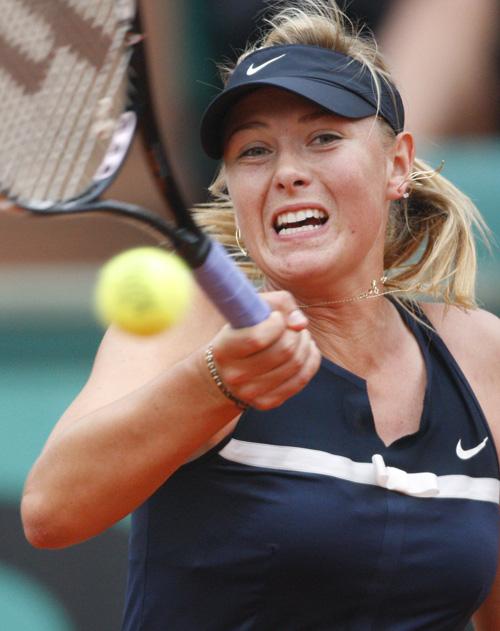Sharapova fumes after unlikely upset
June 3, 2008
PARIS – Maria Sharapova did not go quietly.
No, her departure from the French Open was filled with sound and fury: her stroke-accompanying shrieks, her self-loathing shouts between points and the spectators’ hearty boos and high-pitched whistles that ushered the No. 1-seeded woman to the exit.
One point from reaching the quarterfinals at the only Grand Slam tournament she’s never won, Sharapova allowed every bit of a significant lead slip away Monday and collapsed to a 6-7 (6), 7-6 (5), 6-2 defeat against No. 13 Dinara Safina.
“Oh, I was angry,” Sharapova said. “I was angry for making unforced errors, for not taking some of those balls and just ripping them.”
Her fourth-round departure was the most startling development on a day that included this footnote: The last U.S. man or woman playing singles at Roland Garros, 88th-ranked Robby Ginepri, was eliminated 7-6 (4), 6-3, 6-1 by No. 24 Fernando Gonzalez of Chile.
Get The Daily Illini in your inbox!
“A five-hour ‘grindfest’ would have favored me a little bit more,” said Ginepri, 0-5 at the French Open before this year. “I tried to end the points too quickly.”
Gonzalez now faces No. 1 Roger Federer in the quarterfinals in a rematch of the 2007 Australian Open final that Federer won for one of his 12 Grand Slam titles. No. 5 David Ferrer will meet Gael Monfils in another quarterfinal.
Rounding out the rough showing for Americans in Paris, the top-seeded men’s doubles team of twins Bob and Mike Bryan was upset by Pablo Cuevas of Uruguay and Luis Horna of Peru 6-3, 5-7, 7-6 (1) in a quarterfinal that ended in a downpour – and with a bit of rancor.
When the teams switched sides during the third-set tiebreaker, Cuevas celebrated his duo’s 5-1 lead by leaping over the net. So the Bryans didn’t shake his hand when the match finished.
The U.S. Davis Cup doubles pair was more disturbed by the country’s overall showing on clay.
“I guess we were holding the flag there at the end,” Mike Bryan said. “We’ll suit it up at Wimbledon and see how it goes.”
Sharapova figured it wouldn’t take long to get over Monday’s setback and start focusing on the All England Club, where she won her first Grand Slam title in 2004 at age 17.
With last month’s retirement of top-ranked Justine Henin, and last week’s losses by Venus and Serena Williams, Sharapova appeared to have a clearer-than-usual path to success at the clay-court major. She was one of only two women with a Slam title to her credit among the final 16 players, but will have to wait for another year in Paris.
“I came very close,” Sharapova said.
She led 5-2 in the second set, and went up 40-30 while serving for the match at 5-3. But Safina erased that chance with a backhand winner, and eventually broke when Sharapova missed a forehand. In the ensuing tiebreaker, Sharapova took a 5-2 lead, but Safina claimed five straight points.
“It can go in the wrong direction really fast,” Sharapova said. “It just started going that way.”
Until now, Safina was best known for being the kid sister of Marat Safin, who won the 2000 U.S. Open and 2005 Australian Open. She shares his broad shoulders and short temper, but thus far had not displayed quite as much talent or taste for the big stage, never advancing beyond the quarterfinals at a major.
Even after beating Sharapova, she didn’t exactly display bravado. Asked whether she could win the title, Safina puffed her cheeks, exhaled loudly, and replied, “I mean, it’s not easy.”







